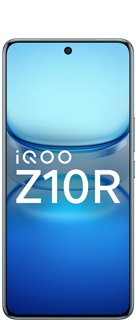Eid, also known as Eid al-Fitr, is a significant Islamic holiday celebrated
Eid, also known as Eid al-Fitr, is a significant Islamic holiday celebrated worldwide to mark the end of Ramadan, the Islamic holy month of fasting. Here's a brief history of Eid:
*Origins*
Eid al-Fitr has its roots in the time of the Prophet Muhammad (peace be upon him), who established the tradition of celebrating the end of Ramadan with a feast.


*Early History*
The first Eid al-Fitr was celebrated in 624 CE, after the Prophet Muhammad and his companions migrated from Mecca to Medina. The celebration marked the end of the first Ramadan in Islamic history.

*Significance*
Eid al-Fitr is a time for Muslims to come together with family and friends, share meals, exchange gifts, and give to charity. The celebration is a way to express gratitude to Allah for the blessings of Ramadan and to seek forgiveness for past mistakes.
*Traditions*
Some of the traditional practices associated with Eid al-Fitr include:
1. *Fasting*: Muslims fast during Ramadan, abstaining from food and drink from dawn to sunset.
2. *Eid Prayer*: Muslims gather for a special prayer, known as the Eid prayer, which is performed in congregation.
3. *Charity*: Muslims are encouraged to give to charity, particularly to those in need.
4. *Feasting*: Families and friends come together to share meals and celebrate the end of Ramadan.
5. *Gift-giving*: Eid is a time for gift-giving, particularly for children.


*Global Celebrations*
Eid al-Fitr is celebrated by Muslims worldwide, with different cultures and traditions adding their unique flavor to the celebrations. Some popular Eid celebrations take place in:
1. *Mecca, Saudi Arabia*: The city where the Prophet Muhammad was born and where the first Eid al-Fitr was celebrated.
2. *Istanbul, Turkey*: Known for its vibrant Eid celebrations, which include traditional music, dance, and food.
3. *Jakarta, Indonesia*: The largest Muslim-majority country in the world, where Eid is celebrated with great fervor and enthusiasm.

*Modern-Day Celebrations*
Today, Eid al-Fitr is celebrated by millions of Muslims worldwide, with many incorporating modern elements into their celebrations, such as:
1. *Social media*: Muslims share Eid greetings and photos on social media platforms.
2. *Eid festivals*: Many cities host Eid festivals, featuring traditional music, dance, and food.
3. *Charity initiatives*: Muslims participate in charity initiatives, such as food drives and fundraising campaigns.
Overall, Eid al-Fitr is a joyous celebration that brings people together, promotes gratitude and generosity, and strengthens community bonds.
Please sign in
Login and share






















